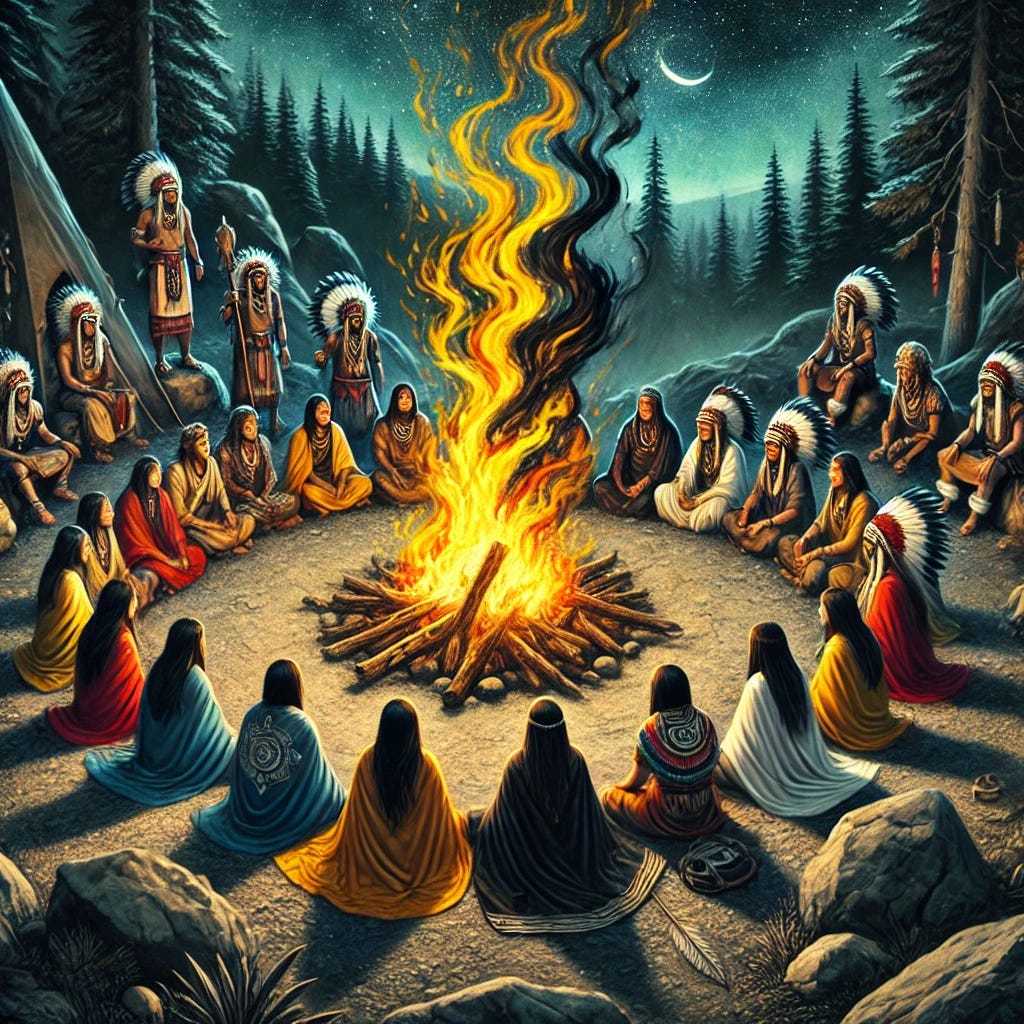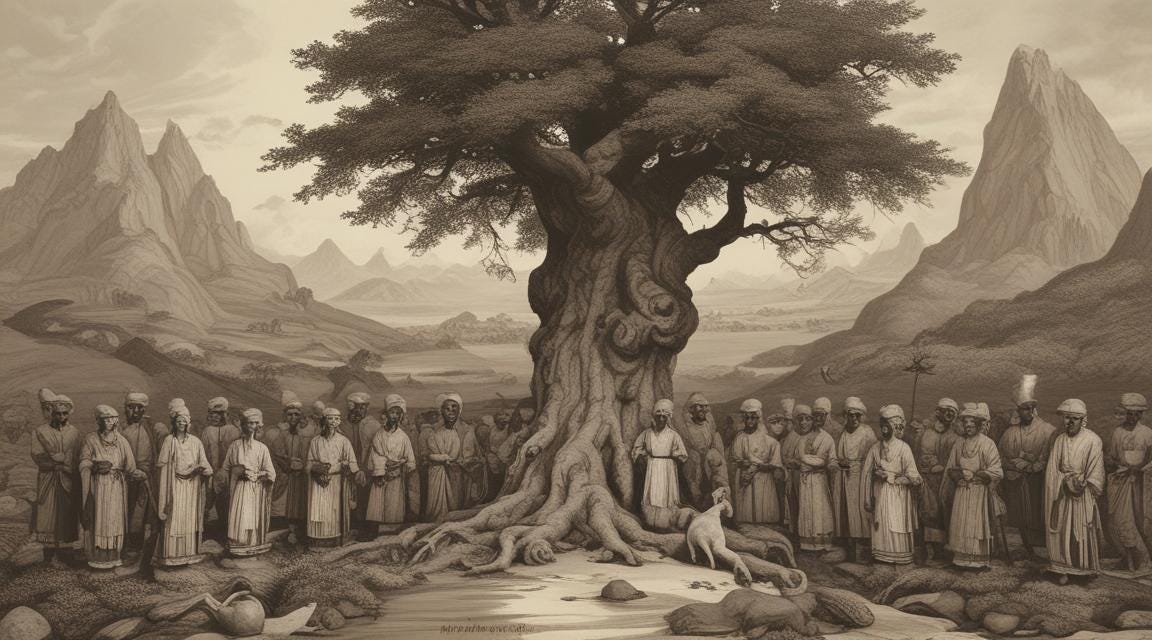I am indigenous to our Mother Earth. The word indigenous moves so much in 2024. As identity in today's world is a complex and often contentious topic. Claiming indigenous roots may provoke some to anger or prompt accusations of cultural appropriation. Thankfully, I do not have a statue to be toppled in this cancel culture era.
However, my claim stands firm: I am indigenous to the earth. My ancestors were curanderos (healers), midwives, warriors, hunters, and gatherers. They were people of the sun, connected deeply to the plants, seasons, and mysteries of their lands. They utilised healing and psychedelic plants and worshiped gods, honouring the earth. This heritage is a shared human legacy, though some have lost touch with it while others have tenaciously clung to it despite the threats of death, imprisonment, slaughter, disease, famine, and betrayal.
Honouring Indigenous Nations
First and foremost, I want to honour and respect all the indigenous nations I have had the privilege to learn from. Through them, I have come to understand that I just like you
have ancestral roots and traditions. Though it may seem lost or forgotten in 2024, this heritage persists in the collective consciousness of humanity, accessible through deep contemplation, reflection, and around the presence of fire.
Frank Fools Crow, a revered Lakota spiritual leader, a man deeply respected within the Lakota nation, and the nephew of Black Elk spoke of the importance of ceremonies and the potential within everyone to conduct them, provided their intentions are pure and aligned with the Creator. He emphasised that these ceremonies are crucial for the survival of the human race.
Cultural Appropriation and True Respect
The aim here is not to champion who can become the greatest shaman. Cultural appropriation is a real issue, with individuals claiming titles and knowledge they do not possess, leading others down misleading paths. Ancestral practices and cultures are not to be manipulated or altered. Yet, the Western mindset often seeks to change and control, ancient and sacred traditions without disregard for the consequences. There is nothing to change we only must sit in silence and listen, observe, there we will find the answers.
The Necessity of Re-Indigenisation
We are at a critical juncture where re-indigenisation is imperative—not a 'Great Reset.' Instead, we must re-indigenise ourselves as people and as humanity, returning to the teachings of our elders, who have preserved the wisdom of their ancestors.
Protecting Our Sacred Elements
💦 Water: We must recognise water as sacred, understanding its vital role in our survival and the ecosystem. Indigenous communities have long protected their waterways, and we must join them in this crucial fight. Learn how to breathe.
🍃 Air: Clean air is a fundamental right. Protecting our atmosphere from pollution and degradation is essential for the health of all living beings.
🔥 Fire: Fire, a symbol of life and transformation, has been a central element in many indigenous cultures. Staying close to the fire—both literally and metaphorically—helps us stay connected to our primal roots.
🌎 Earth: Staying grounded, both physically and spiritually, is crucial. The earth sustains us, and we must treat it with the respect it deserves.
Embracing Our Shared Humanity
The Great Mystery has brought us together, in all our diversity. Whether we are from, we must find love in our hearts and reconnect with the earth and our ancestors for our collective survival. This reconnection is not just a return to traditions but a reclamation of our place within the web of life, understanding our role as caretakers of this planet.
Re-indigenisation is not a call to return to a romanticised past but a necessary step towards a sustainable future. By embracing our indigenous roots and the wisdom of our ancestors, we can find solutions to modern challenges and foster a more harmonious relationship with the earth and each other.
Together, we can create a future where respect for the natural world and each other is paramount, ensuring the survival and flourishing of humanity for generations to come.





Thanks for this Bobby. I appreciate the need for 're-indigenisation' and reconnecting to our roots. Will you be writing about this process in future posts, in terms of how we can do that on a practical level? Connecting to my indigenous roots has been an ongoing journey of discovery, through time in nature with the sacred elements, ritual and ceremony, and learning about indigenous traditions from others. It's not something that has been shown / taught / passed down from my family or community growing up.